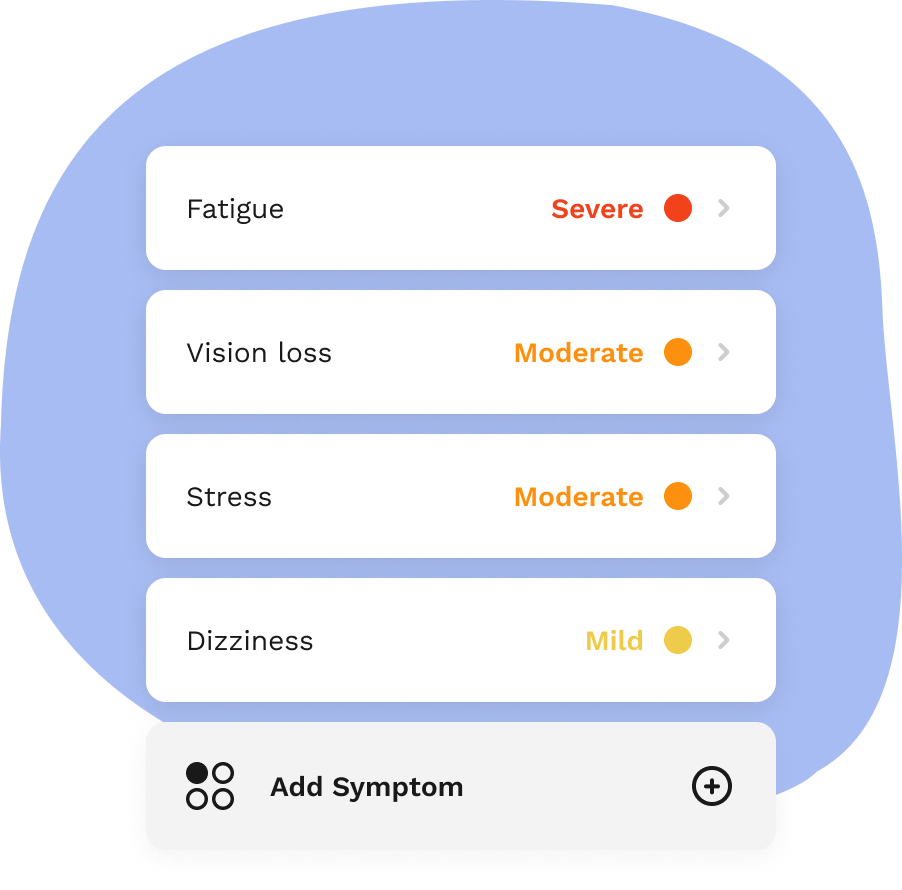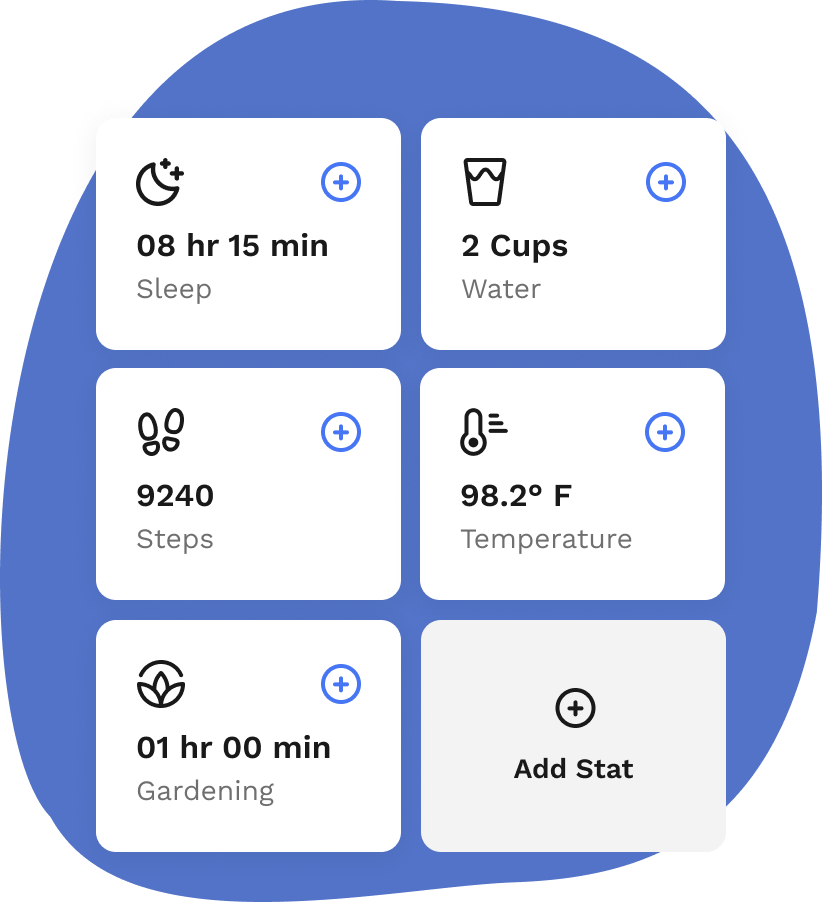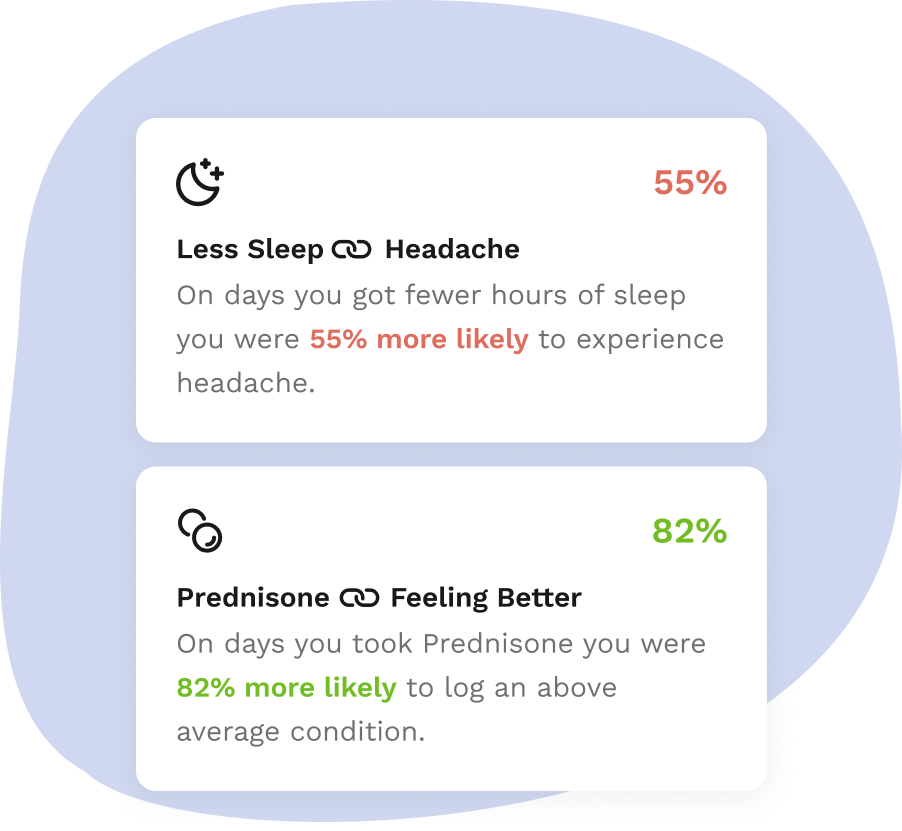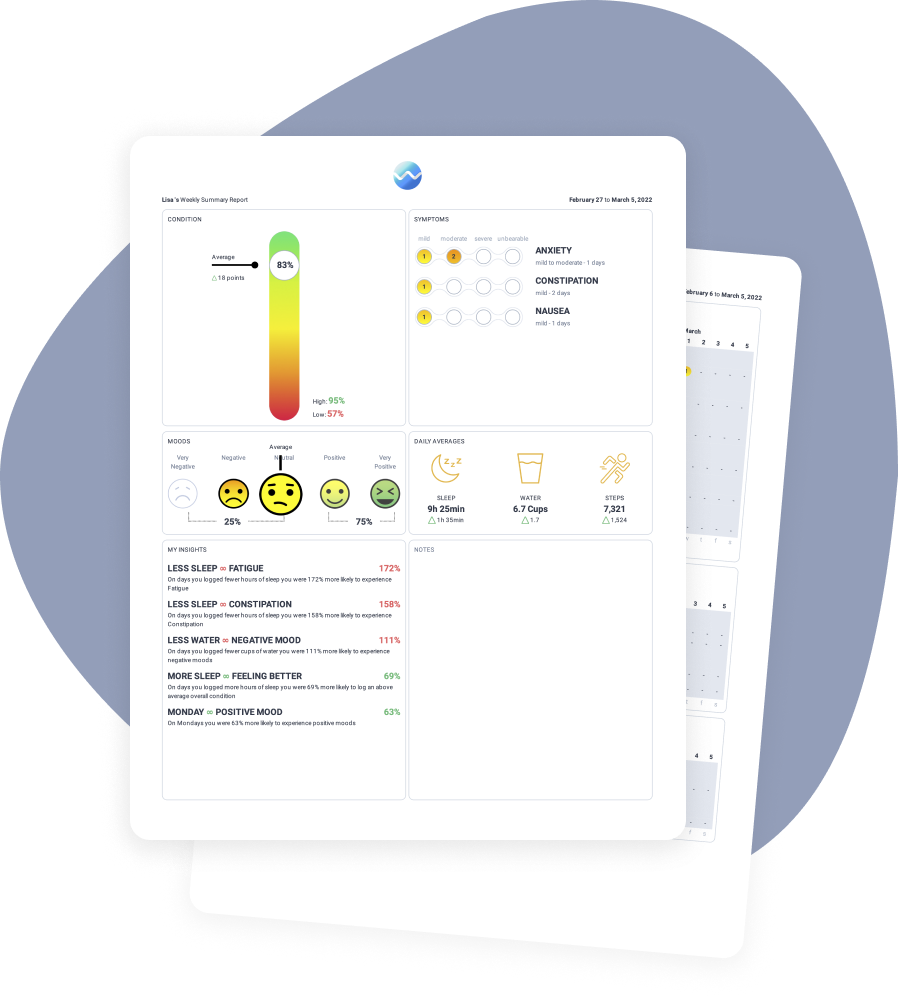Take control of your treatment journey
Highly Rated By Users
Rated #1 Symptom Tracker
for patients by Cedars Sinai… more
Let’s discover what makes you feel better.
A free app for cancer and chronic illness patients.
About Wave
-
About Wave -
Your personal health companion
Created by patients, for patients, Wave Health App is an all-in-one symptom, activity, and medication tracker — designed to help cancer and chronic illness patients finally take control.

Check in on how you’re feeling
Record your daily symptoms and overall wellbeing to identify trends and better understand your journey.

Track anything you want
Monitor the activities, medications, and vitals that are important to your treatment plan. Track practically anything with our Custom Tracker.

Learn from personal insights
AI-powered health insights equip you with actionable information, helping you learn how to manage side-effects and feel better… more

Share updates with your doctor
Subscribe to Wave Pro for weekly health summary reports. Share reports with doctors and caregivers to help your team make better treatment decisions… more
Powerful data for healthcare partners
Wave Health, powered by TTI, Inc., is a complete solution for healthcare, offering two platforms: a remote monitoring care portal used by healthcare professionals — and a mobile application to support and improve the lives of cancer and chronic illness patients.
Our real world evidence data provides ePRO updates in real time, and supplements clinical data with crucial context to explain and generate patient insights.
All of this fuels our mission to transform disease treatment and enhance health outcomes. Learn More
92% of users felt Wave was a helpful aspect of their treatment journey.
(Wave Survey, 2021)
Improving Access to Clinical Trials
As a patient support platform, Wave connects patients to a variety of clinical trial opportunities and innovative treatments — according to therapeutic area and geographic location. Browse a list of active trials.
Hear what our users are saying…
Your privacy is our top priority
We hold ourselves to the highest standards of privacy and data security. Your personal information remains secure and in your control.
Physical, electronic, and procedural safeguards are in place to protect your personal information.
Your data is never shared automatically or without your consent.
At any time, receive a copy or request deletion of your information.
Supported by Health Professionals
“I have a better understanding now with Wave, as opposed to when I see [patient] every couple weeks in the office with her trying to remember what side effects she had on what day. Wave has improved communication and we’re more connected.”
Dr. Angela Keuck
Texas Oncology



























